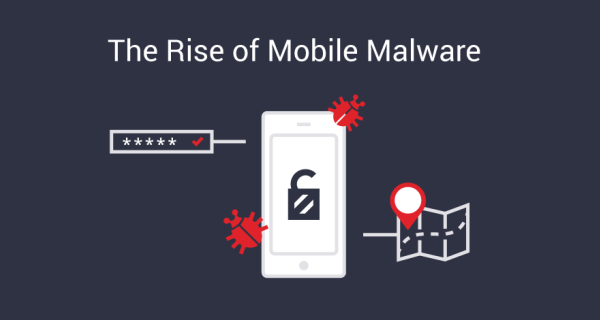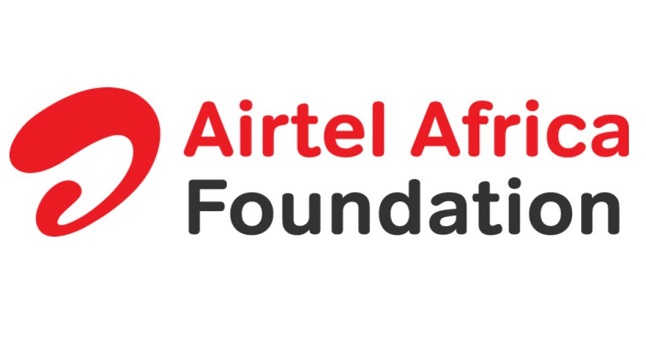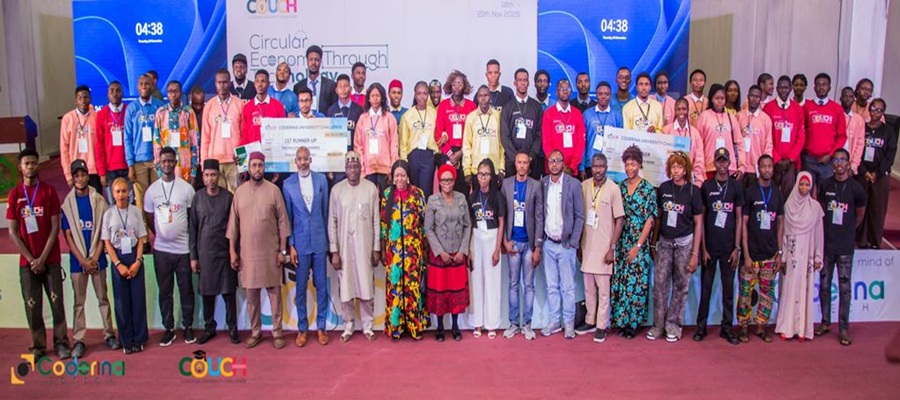Telecom
1 in 9 Android Phones in Nigeria Infected with Mobile Malware

Research shows that mobile users in Nigeria have been impacted by mobile malware during the COVID-19 pandemic. The country, which has low mobile internet penetration at 35%, has tremendous growth potential but is also a prime target for threat actors.

This is according to proprietary data gathered by mobile technology specialist, Upstream, and its full-stack anti-fraud platform, Secure-D, which was released in a 2021 report A Pandemic On Mobile – Mobile Ad Fraud and Malware.
Insights for Nigeria come from a three-month sensor campaign to determine fraud levels in the country from November 2020 to January 2021. During the study period 415,000 mobile transactions and service sign-ups were processed.
According to Upstream, during this three-month period the platform detected 576 malicious apps in Nigeria – many of which are yet to be removed from the Google Play store.
“It is noted that over 50% of these apps have gone through Google’s official app storefront, a percentage much higher than the average 29% in other countries.
“Overall data from Upstream’s malware report shows that threat actors are increasingly turning their attention away from Google Play to other third-party app stores that are unregulated,” reads a statement released by the company
Research shows that the top five apps with suspicious behaviour that were blocked are: XOS Launcher, HiOS Launcher, Phoenix Browser, AHA Games and Cobo Launcher Easily DIY Theme. XOS Launcher, a popular phone customisation app that claims to speed up handsets, was found present on 1,836 devices and 3,394 attempted fraudulent transactions were stopped.
The app is still available on the Google Play store, Upstream added.
Globally, only 2.6% of devices are reported to be harbouring high-risk apps and to Upstream, this shows that some mobile markets are being disproportionately targeted by malicious actors. High malware infection rates are also found in Asia (Indonesia and Thailand) and Brazil.
“Mobile users in emerging markets, especially in rural regions, tend to rely solely on their mobile devices to connect to the online world, something that has become essential during the pandemic. These users tend to be digital novices, may access the internet for the first time, and use low-end Android devices.
They are often unbanked, relying on their mobile phones to pay for goods and services. This dependency is making them more vulnerable to bad actors, especially throughout the health crisis, resulting in the high infection rates we have identified”, said Upstream CEO, Dimitris Maniatis.
The company continues that the pandemic has dramatically increased the risk of digital fraud, as more businesses and individuals turned to the internet for work, entertainment, shopping and socialising.
During the past period, Gaming became the most popular app genre in the Google Play store for fraud, with 21% of all suspicious apps blocked coming from this category.
The top suspicious app of the period is “com.android.fmradio”, a radio player app, responsible for 99.8 million fraudulent transactions. The app has been removed from Google’s official app store.
Heavily featured in the top ten most malicious apps lists are system apps, which typically come preinstalled on low-end Android handsets, that are very popular due to their low price point. Freemium video apps such as SnapTube and VivaVideo are also main agitators in emerging markets.
To mitigate the impact of mobile fraud and protect users, especially in the world’s most vulnerable regions, Maniatis cited three key prerequisites: “Decisive self-regulation and market-wide vigilance on one side, and mobile network-level solutions that guarantee prevention through dedicated expertise and 24×7 monitoring on the other, are two essential parts of the solution.
As more of our life and work goes online, security will need to become an integral part of any digital offering and not an optional add-on feature”.
He continued: “Combating fraud will ensure the mobile ecosystem retains its integrity and profitability and can keep providing communities with an essential and valued service”.
Telecom
Airtel Africa Foundation Opens Undergraduate Scholarship Portal in Nigeria

The Airtel Africa Foundation has opened applications for its Undergraduate Tech Scholarship in Nigeria, inviting first-year university students with strong academic potential to apply for financial support aimed at accelerating their studies in technology and related fields.

The scheme provides full tuition, accommodation support, and essential study materials for eligible 100-level students. It forms part of the Foundation’s F.E.E.D. agenda, which promotes Financial Empowerment, Education, Environmental Protection, and Digital Inclusion, with a focus on creating pathways for talented young people who face financial barriers.
Airtel Nigeria CEO, Dinesh Balsingh, encouraged students to take advantage of the opportunity. He noted that, “Education is one of the most powerful tools for national development,” adding that “as an organisation, Airtel is determined to build a platform for aspiring young Nigerians to learn, innovate and lead in the country’s expanding technology landscape.”
Applications are open to students pursuing courses such as Information Technology, Computer Science, Software Engineering, Data Science, Cyber Security, Artificial Intelligence, and other ICT-related disciplines at participating universities: University of Lagos, University of Nigeria Nsukka, Ahmadu Bello University, University of Benin, Obafemi Awolowo University, University of Ilorin, and Tai Solarin University of Education.
Dr Segun Ogunsanya, Chairman of the Airtel Africa Foundation, said the scholarship demonstrates the organisation’s commitment to nurturing Africa’s next generation of digital leaders. “Young Africans are brimming with talent and ambition. What many need is a fair chance to pursue their education without financial pressure. This scholarship reflects our belief that investing in their growth will strengthen communities, empower families, and expand the continent’s digital future,” he said.
Applicants must be enrolled in 100-level, have scored at least 230 in JAMB, and hold a minimum of five credits in WAEC, including English and Mathematics, in a single sitting. Required documents include Joint Admissions and Matriculation Board (JAMB) results, university admission letter, West African Examination Council (WAEC) certificate, student identity card, and academic transcript or university results.
The Foundation encourages qualified students across the listed institutions to apply and position themselves for a stronger start in the technology sector. Applications can be submitted at candidate.scholastica.ng/schemes/airtelfellowship2025.
Telecom
YouTube Nigeria Unveils 2025’s Top Lists and Launches New YouTube Recap Feature

YouTube Nigeria on Wednesday released its official 2025 Top Lists, celebrating the nation’s leading music videos and creators, while also unveiling a new personalized feature called YouTube Recap.

YouTube
The lists highlight the explosive growth of Afrobeats, gospel, and Nollywood storytelling, underscoring Nigeria’s rising influence in global entertainment.
According to YouTube, the most-watched music video in Nigeria this year was No Turning Back II by Gaise Baba and Lawrence Oyor, followed by Shallipopi’s Laho and Davido’s With You featuring Omah Lay. Other artists on the Top 10 include Olamide, Asake, Rema, Chella, Wizkid, and Burna Boy.
On the creators’ side, Nollywood channels such as Omoni Oboli TV, Itelediconstudio, and Uchenna Mbunabo TV dominated the rankings, alongside comedy sensation Brain Jotter, who continues to attract millions of viewers with his skits.
Addy Awofisayo, YouTube’s Head of Music for Sub-Saharan Africa, said the lists reflect Nigeria’s “undeniable creative energy” and the global resonance of its artists and storytellers.
“From chart-topping music to must-watch Nollywood dramas, we’re proud that YouTube is the place where this talent can shine,” Awofisayo said.
The newly launched YouTube Recap feature offers users a personalized year-end summary of their viewing habits. It includes highlights such as top-watched channels, favorite topics, and a “Personality Type” card that categorizes viewers into one of 14 personas. It also reveals whether users rank among the top 25 per cent of fans for their favorite creators.
YouTube said the recap is accessible via a banner on the homepage of the app.
The company noted that the initiative aims to give Nigerians a fun and shareable way to celebrate the videos that defined their year
Telecom
COUCH 2025 Grand Finale Highlights Student Breakthroughs, Secures Government Pledge for University Research Commercialization

Coderina Education and Technology Foundation, in partnership with the National Universities Commission (NUC), successfully hosted the Grand Finale of the Coderina University Challenge (COUCH) 2025 at the NUC Auditorium, Abuja.

A cross section of attendees
The event gathered top government officials, university leaders, industry partners, and the ten finalist teams selected from over sixty-two initial entries nationwide.
This year’s challenge, themed “Circular Economy Through Technology” spotlighted the potential of Nigerian university students to develop scalable, tech-enabled solutions that address pressing national issues in sustainability, waste management, energy transition, and the circular economy.
The Grand Finale reaffirmed a consistent message shared across all keynote addresses: Nigeria must accelerate the movement of university research from shelves into practical innovation, commercialization, and industry adoption, a key driver of national development and economic growth.
In his opening address, Mr. Olufemi Niyi, chairman, Coderina Board of Directors, emphasized that university projects must not remain buried in archives.
He highlighted COUCH as a platform proving that research can become functional innovation.
Mr. Niyi called on donors, development partners, and private sector stakeholders to support COUCH as a sustainable national innovation pipeline and encouraged investors to channel resources into skills development and technology innovation among youth.
In his keynote address, Dr. Kingsley Tochukwu, the minister of Innovation, Science and Technology, commended the COUCH programme for its role in moving research “from the shelves to the marketplace,” a key priority under the ministry’s national innovation agenda.
He noted that the initiative exemplifies the type of collaboration and commercialization pipeline needed to unlock Nigeria’s scientific and technological potential.
He highlighted several priority areas critical to advancing the country’s innovation landscape:
“Strengthening Nigeria’s innovation ecosystem through coordinated national frameworks and partnerships; expanding digital innovation pathways to accelerate the adoption of emerging technologies, and building a tech-driven economy that delivers measurable value and global competitiveness”.
The Minister added that “Creating new opportunities for youth innovators, ensuring they are empowered to participate in and drive the innovation economy, are part of the key focus areas of the Ministry
He also expressed the Ministry’s readiness to partner with COUCH, Coderina, and the NUC to incubate and scale these student-led innovations.
Mallam Abdullahi Yusuf Ribadu, the executive secretary of NUC acknowledged the twelve universities nominated for the pilot edition by the commission.
He urged the finalists to use their prize money to advance entrepreneurship and technical skill development, reinforcing the NUC’s commitment to fostering innovation-driven learning across tertiary institutions.
In a remarkable commitment, the Minister donated five million naira to ‘Waste2Light’ from FUT Minna and announced an intention to collaborate with all ten finalist universities to support commercialization.
Dr. Tope Kolade Fasua, special address to the President on Economic Affairs, stated that technology remains the largest driver of global economic growth, stressing that Nigeria’s economic transformation is intertwined with youth innovation.
He commended Coderina and advised for greater visibility and national media outreach; creation of an innovation “museum or archive” for brilliant ideas, and the establishment of centers where theories and research can be turned into products.
He concluded that the future of Nigeria’s economy lies in the hands of today’s young innovators.
Professor Sa’adatu Hassan Liman, special guest at the programme and vice-chancellor, Nasarawa State University, delivering her address on “Sustainable National Transformation,” emphasized the need for stronger industry–university collaborations.
She also emphasized need for entrepreneurial university culture; digital literacy in emerging technologies such as AI, blockchain, IoT; adoption of virtual learning and remote laboratories, and inclusive innovation for underserved communities.
She highlighted AI as a catalyst for reimagining teaching and learning, including teacher retraining and curriculum enhancement.
The competition had two categories of prizes recognizing both technical excellence and public engagement.
Winners of the first category, The Challenge, based on pitch and prototype presentation was Team IMSU – Imo State University , taking home the star prize of ₦5,000,000; 2nd Place winners: Team Neuronaut Nile University Prize, ₦2,500,000, and 3rd Place – Team Waste2light from the Federal University of Technology, Minna: ₦1,500,000.
The People’s Choice Awards winners, based on social media engagement and public voting, are Team ADSU Innovators – Adamawa State Uni.: ₦250,000; 2nd Place -Team Scraplink, Lagos State University: ₦150,000, and 3rd place – Team Circle from the Federal University of Technology, Akure, took home ₦100,000.
Giving COUCH overview, Ms. Christiana Anthony, the Project Lead, reaffirmed that COUCH is not merely a competition but a structured innovation development program.
She highlighted the strong collaboration between Coderina and the NUC, noting that the program has created a national pathway for students to design, build, test, and pitch solutions with real potential for commercialization.
The COUCH 2025 grand finale demonstrated Nigeria’s readiness to harness university-driven innovation as a catalyst for economic growth, job creation, and sustainable development.

 News3 days ago
News3 days agoLagos Launches Tele-Vet, Nigeria’s First Veterinary Call Centre

 Telecom2 days ago
Telecom2 days agoNigeria Dominates 2025 TikTok Sub-Saharan Africa Awards with Six Wins

 E-Business2 days ago
E-Business2 days agoReport Reveals Half of 2025’s Compromised Passwords were Already Leaked

 E-Financial2 days ago
E-Financial2 days agoFG, SEC, NGX Group Agree on Capital Gains Tax Reform

 Broadcasting2 days ago
Broadcasting2 days agoEFCC Arik Case: Witness Testifies on Receiver Manager Nominee’s Role in NG Eagle Shareholding

 E-Financial2 days ago
E-Financial2 days agoA Nation on Alert: Is FIRS’ Xpress Payments Move Consolidating a Revenue Cartel?

 E-Business2 days ago
E-Business2 days agoUBA Wins Africa’s Bank of the Year for Third Time in Five Years

 Telecom2 days ago
Telecom2 days agoAirtel Africa Foundation Celebrates International Volunteer Day, Honours Employee Volunteers















